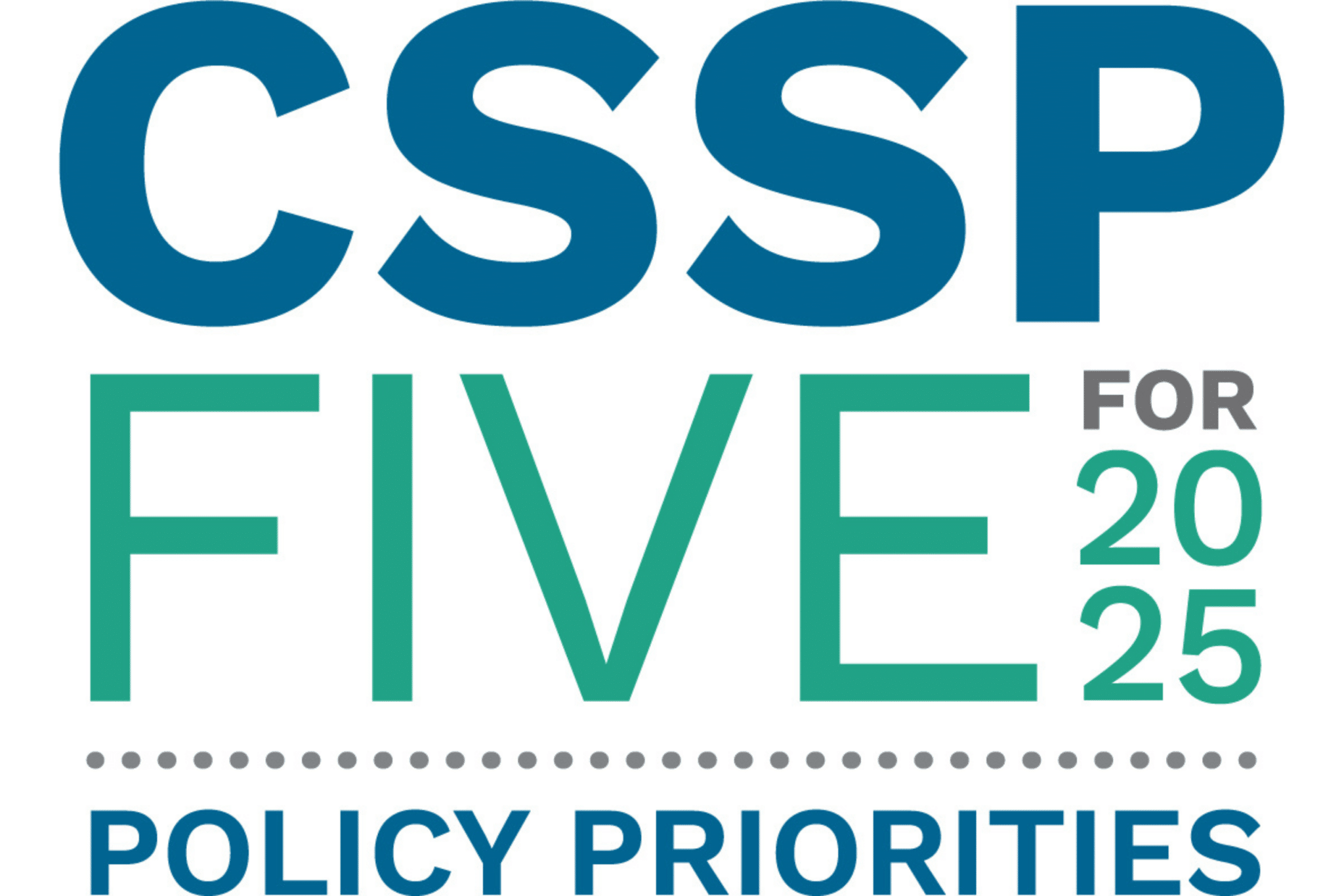CSSP FIVE for 2025: Policy Priorities to Champion Economic Justice, Health Justice, and Family Autonomy
September 23, 2024
by

Heading into 2025, the challenges young people and families face are significant, but so are the opportunities. There is energy around passing an expanded Child Tax Credit, new and much needed attention to the stressors parents face and the mental health toll parenting can take, and a bipartisan commitment to re-orient supports upstream, before families might come to the attention of child welfare systems.
Over the next several weeks, CSSP will highlight a series of policy ideas to take advantage of these opportunities, and to meet the challenges head on. These policy ideas and approaches each reflect the most essential elements of effective policymaking: they center youth and families in their design and approach, address complex and interconnected problems, and recognize and respect people’s intersecting identities—including race and ethnicity, sexual orientation and gender identity, immigration status, and caregiving status. As we look forward, please join us in advancing a more equitable, family-centered set of solutions—so we can all thrive.
Five policy ideas for 2025:
Unrestricted Cash: A Lifeline for Young People & Families
Everyone deserves a foundation of financial security. Regular, meaningful, unrestricted cash assistance—or a guaranteed income—is critical to ensure that young people and families can flexibly meet their needs, live with dignity, and pursue their aspirations.
Affirming LGBTQ+ Youth: Strategies for Communities and Child Welfare Systems
LGBTQ+ youth deserve to be affirmed and surrounded by loving community—whether living at home with their families, or in foster care. Affirming LGBTQ+ youth requires developing programming that recognizes and respects young people’s full identities and eliminating policies and practices that marginalize or diminish any aspect of a young person’s identity.
Culturally Responsive Supports: The Details Matter for Families
Cultural identity is a source of strength, especially for people of color and others who have been marginalized. Services are therefore more effective when they are culturally tailored: designed by and with the families they are intended to help, and implemented in ways that are grounded in families’ needs, cultural values, and customs.
Care for Kids: Supporting Young Children and Valuing Care Providers
Every day, young children are nurtured by a wide range of caregivers—including teachers, parents, grandparents, and other loved ones and community members, in a variety of settings. In order for young children to thrive, we need to invest in and support every care arrangement and ensure care providers are financially supported so that they can do the critical work of providing loving and enriching care.
Making Well-Being a Priority: Meaningful Supports for Mental Health
Being well and leading a healthy and fulfilling life requires a proactive approach to caring for our mental health. Young people and families should have access to a range of mental health supports, well-before any crises arise, that promote well-being and healing in holistic ways and that are responsive to their identities and experiences.
Join us online at CSSP.org as well as on LinkedIn, Instagram, and Facebook to learn more about our 2025 policy priorities and the work we are doing in these areas to advance real and lasting policy change.


